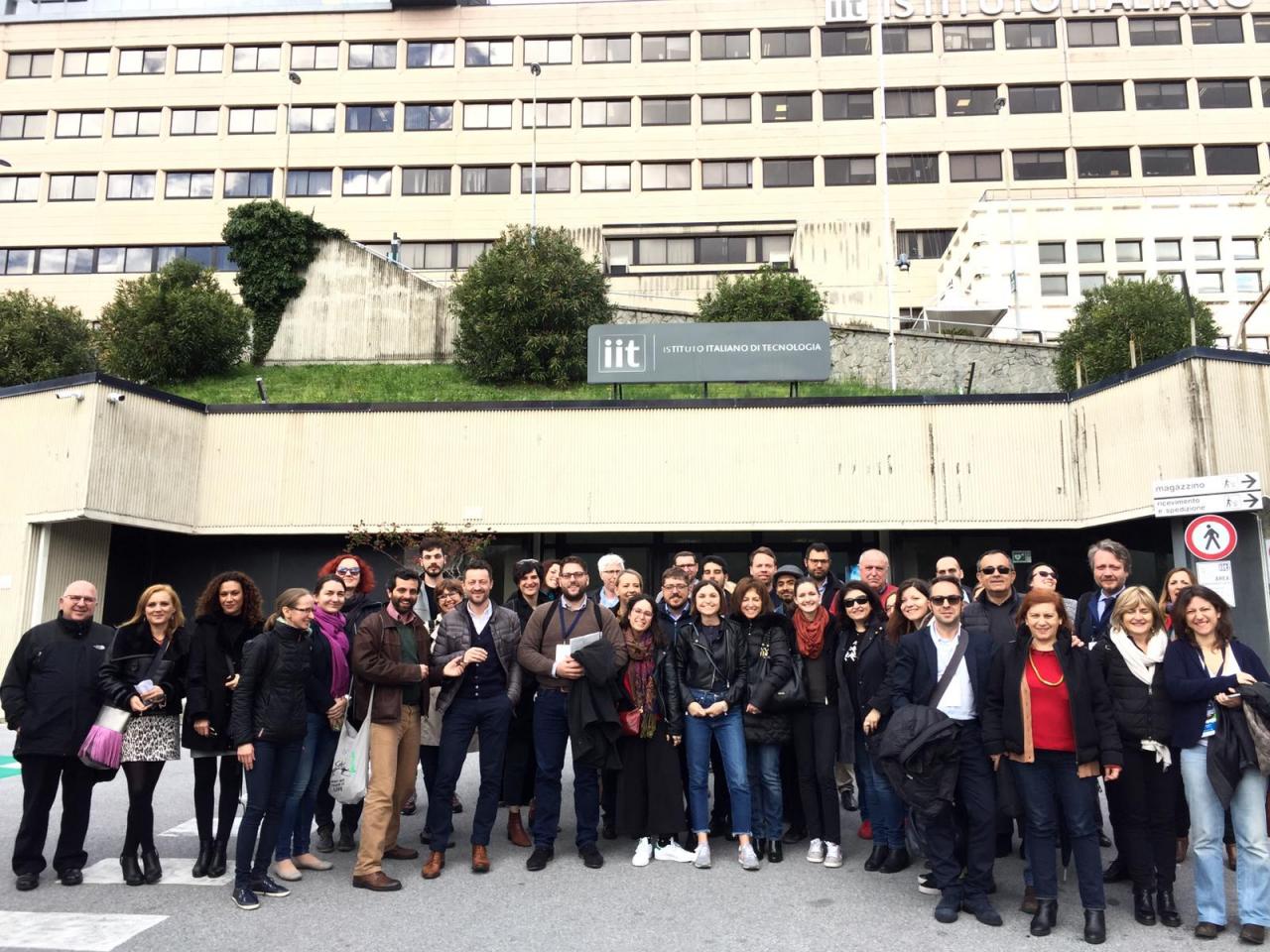
On 11-13 April the Interactive Cities final conference was held in Genoa to showcase the potential and challenges of social media and digital tools experimented at local level. Cities involved in the network also decided to continue the work together in the coming years through a Eurocities Task Force on Digital Citizenship. The conference comprised workshops to present the Integrated Action Plans (IAPs), developed at local level, presentations by guests specialised in various aspects, site visits and public debates.
Celebrating together the conclusion of a common path to start a new one: this is what the Interactive Cities final conference was about. To do so, partners gathered to explain the work carried out up until now, highlighting how digital can help implement local strategies. Cities working on how social media and digital tool can promote tourism attraction highlighted how social media is a particularly strong tool when wanting to create a shared narrative of the city. Genoa piloted a series of actions, such as the World Pesto Day and Erasmus Ambassadors, which helped to create a territorial marketing strategy to which all relevant local stakeholders could contribute and belong to. Alba Iulia focused on improving the night stays in the city by creating a shared storytelling of the citadel also with unofficial stakeholders. Varna aimed at strengthening professional capacities of the tourism sector by creating a three day seminar with different stakeholders and a hackathon, which were also embedded within the Bulgarian EU Presidency discourse on digitalisation.
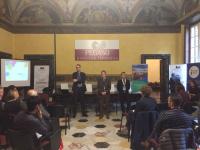
| 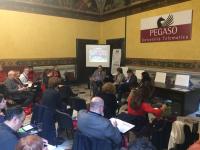
|
Francesco Panella, researcher at the Joint Research Centre in Ispra, joined us to present the ongoing work on the Cultural and Creative Cities Monitor, which is assessing the cultural vibrancy, creative economy, enabling environment of 168 cities in Europe. This impressive amount of data will provide scientific evidence to the EU Commission for policy making. For this reason the JRC is currently developing an app with the available data and looking for cities to pilot their actions. Anyone interested?
The session on business promotion shared the experiences on how digital communication could strengthen local businesses, developing a mixed strategy of social media and other tools. Semaest in Paris faced the challenge that local shops were challenged by e-commerce, reason why free online tools, like google maps or Facebook, and websites, could help them by providing free advertising. By collaborating with local start-ups it was possible to pilot a series of strategic actions, such as with the Cmarue website, that collected inputs from citizens to identify functions in shops to be assigned by the Semaest programs. In Debrecen the creation of a network of local stakeholders from the provate sector allowed to kick-start the debate around local needs and challenges. In Ghent attracting new companies was the key goal, a Smart City of People working with digital scale-ups and start-ups to improve the city brand through its assets.
Coen Bergman, researcher at Waag Society, joined as a follow up to our site visit in Amsterdam last November. Waag operates at the intersection of science, technology and the arts, focusing on technology as an instrument of social change, and guided by the values of fairness, openness and inclusivity. To do so, they run workshops, projects, debates and provide open source toolkits for citizens (here some examples). The run a Fab Lab, a place for learning and innovation, a space to play, to create, to learn, to mentor, to invent. There work very much on the topic of ownership of technology, as in the case of the Fairphone: "If you can't open it, you don't own it!”
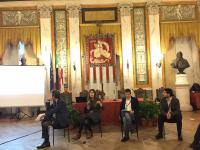
| 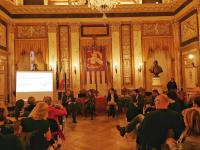
|
The urban development session greatly focused on how to improve participation in decision-making processes. Thanks to its experience in e-governance, Tartu could share the experience of how they are targeting youngsters to get more involved in participatory budgeting and other democratising processes. In Palermo gamification has been essential to the development of the communication strategy around the new mobility plan, which allows citizens and tourists to better access the impressive UNESCO Arab-Norman heritage. In Murcia the social media and analogical communication strategy around the rehabilitation of the Santa Eulalia neighbourhood enabled citizens to contribute to the debate around the transformation of their public spaces in the historical centre. In Lisbon, the Community-Led Local Development network which is composed by the City Council and 160 organisations tackling urban poverty, greatly focused on how to reach marginalised communities to empower them through work and education. The panel was fully composed by women, which reminded the audience to always keep in consideration gender equality in tech as well as in decision making processes!
Bernardo Gonzales, from the MediaLab Prado in Madrid, joined the event as a follow up of the webinar in which the Decide Madrid participatory decision-making platform was presented. The consul platforms allows all citizens older than 16 to participate in participatory budgeting, policy making and urban development projects. The digital component is integrated by a series of Social Fora in each district of the city. The Social Media play the role of further attracting people to the platform but the data is managed by Decide Madrid, who is then able to analyse and visualise the online debates. The work in Madrid is the result of a societal and political shift over the last years, which is in constant evolution.
The final session saw policy makers from local and EU level joining to debate on the future of digital strategies in European cities. Wolfgang Hoefs from the DG Connect shared insights on the ingoing work of the Digital Transition Partnership of the EU Urban Agenda, whilst Eddy Adams from the URBACT Secretariat explained how work in the digital economy is a great opportunity, if we are able to make sure that everyone can benefit from it, as is the debate in the Jobs and Skills Partnership. Daniele Terzariol explained how in the City Centre Doctor URBACT network digital strategies can help revitalise small cities, which are often left out of the mainstream discourse. Sergio Talamo from the Formez, centre for civil servants education and training, explained how they are greatly focusing on formalising official competences around digital communication in the public administration in Italy. Mary-Ann Schreurs, vice-mayor of Eindhoven and chair of the Knowledge Society Forum of the Eurocities concluded the panel by highlighting the importance of developing a European Digital Economy model, not capitalist as the American one nor dictating as the south-est Asian one, but that will engage citizens and share resources thanks to our democratic values.
Daniela Patti
Lead Expert
